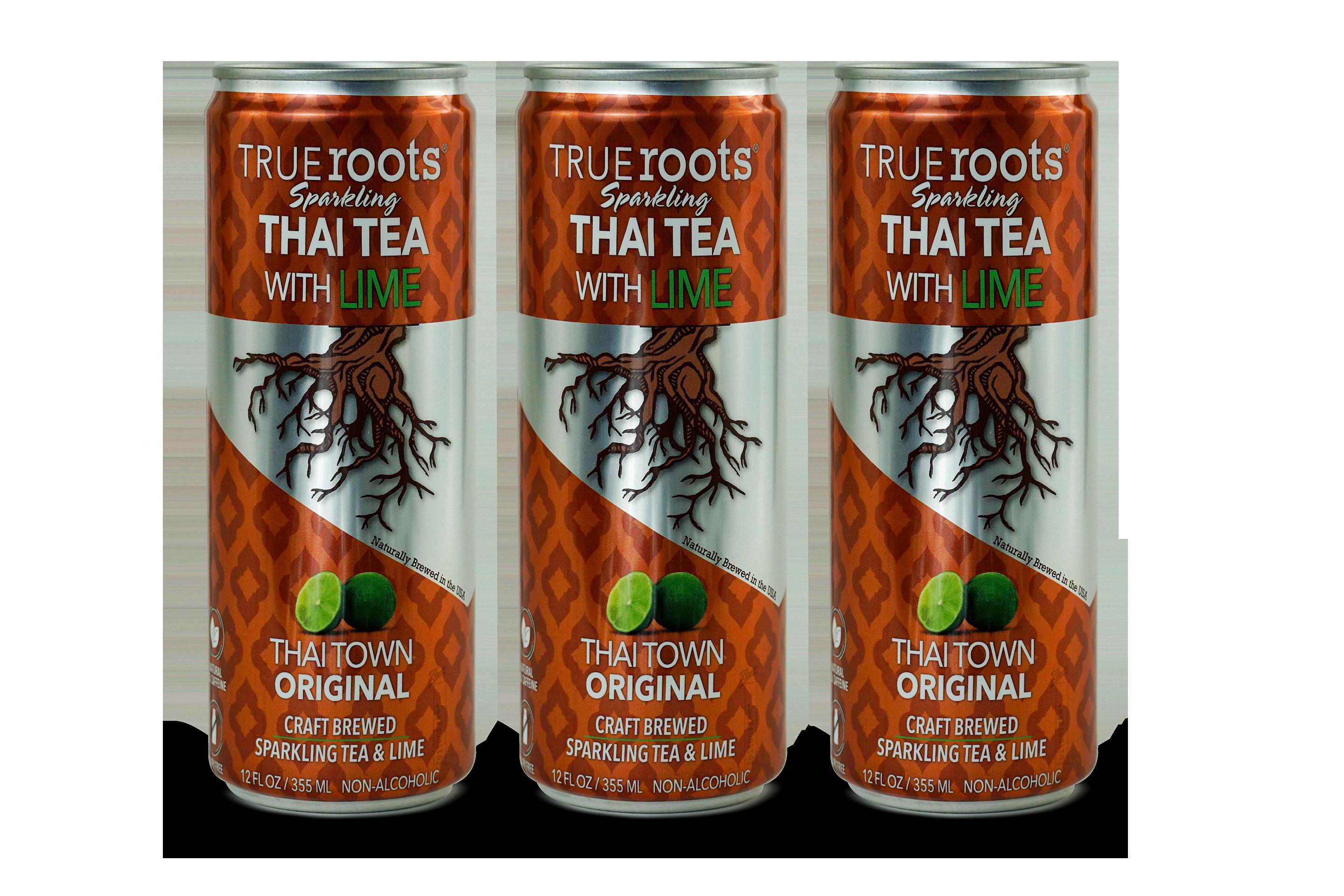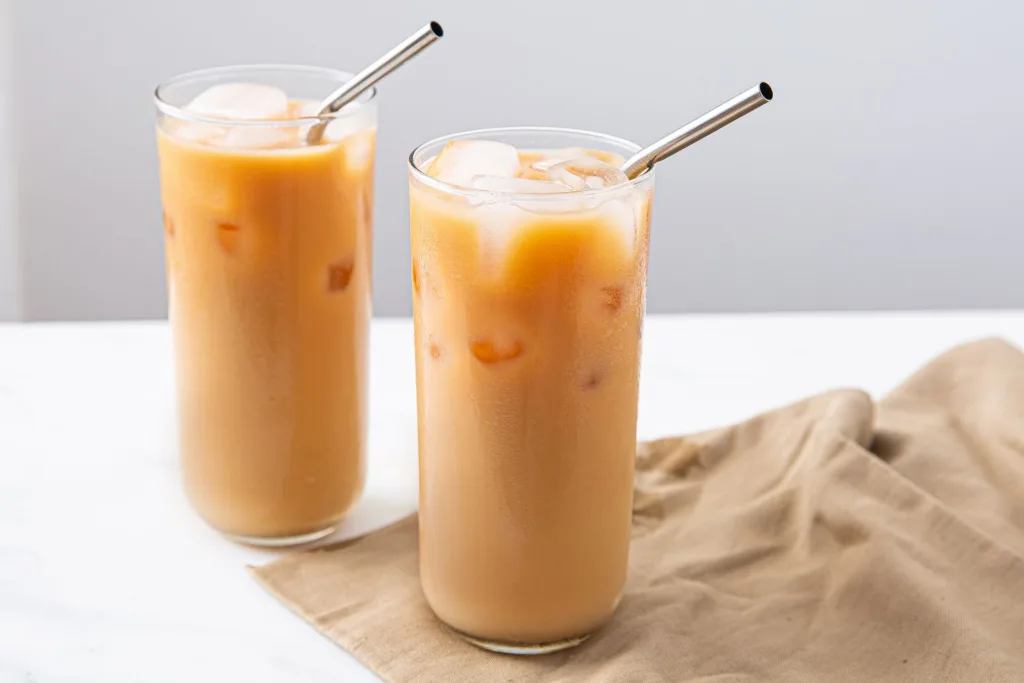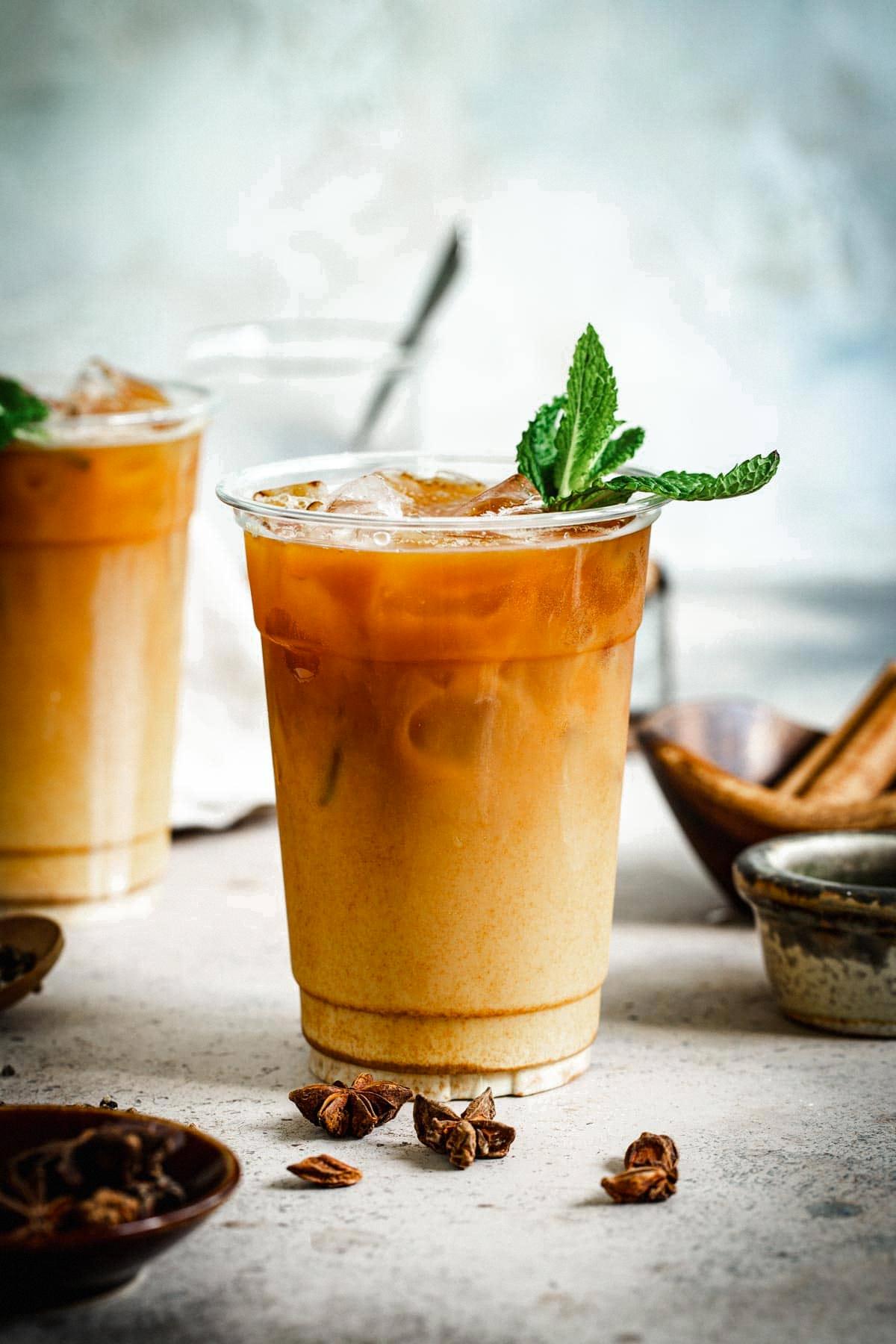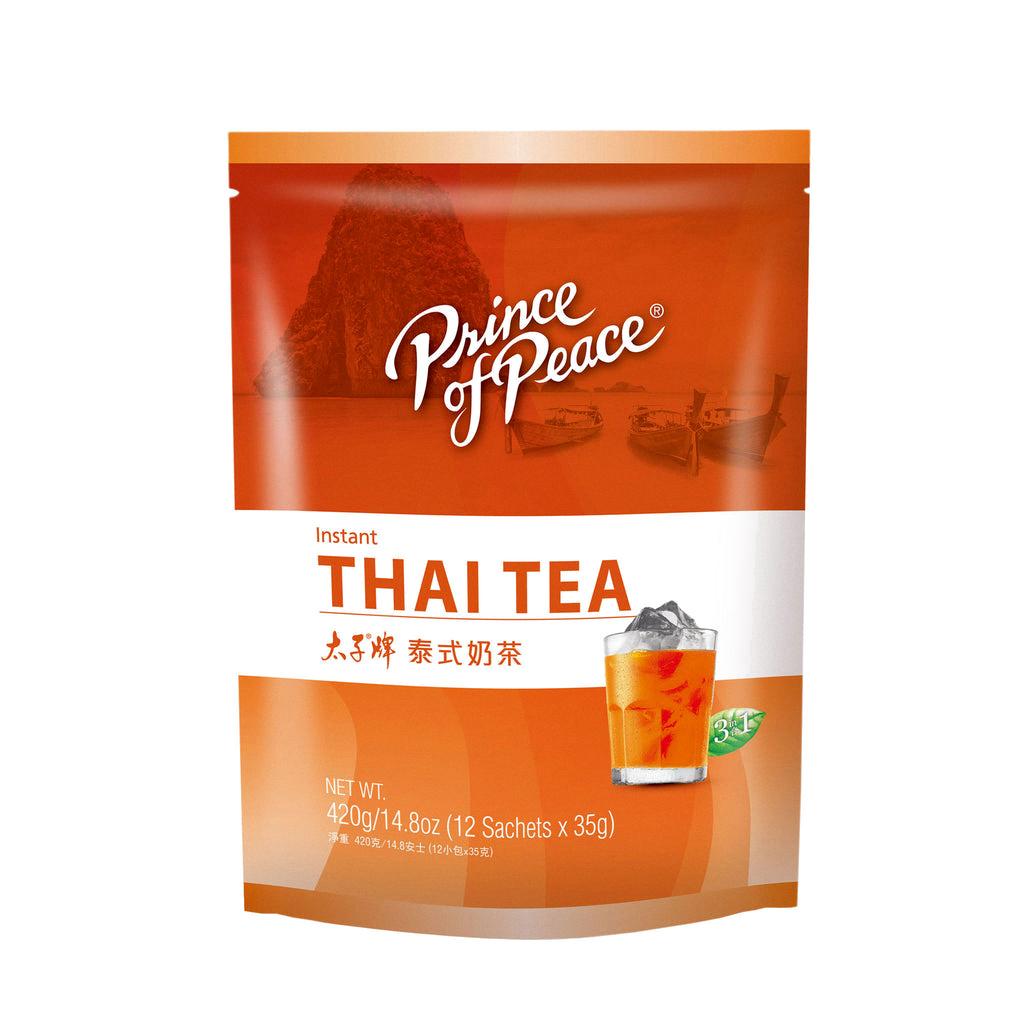Thai tea, also known as cha yen, is a popular drink that originated in Thailand. It is a sweet and creamy beverage that is perfect for those who love a litte bit of indulgence in their drinks. But for those who are caffeine-conscious, there might be some questions about the caffeine content in Thai tea. So, does Thai tea have caffeine?
The answer is yes, Thai tea does contain caffeine. However, the amount of caffeine may vary depending on the type of tea used and the method of preparation. A typical Thai tea is made with black tea, which contains caffeine. A serving size of 8oz of black tea used in Thai tea may contain around 47 mg of caffeine.
But if you are looking for a less-caffeinated option, you can opt for decaf Thai tea or other tea types, such as green tea or white tea. The caffeine content in these teas is lower than that of black tea. For example, one cup of green tea typically contains around 25 mg of caffeine, while white tea contains around 15 mg of caffeine per cup.
However, it is important to note that tea is still a source of caffeine, and the caffeine levels can vary depending on the brewing time, temperature, and other factors. But compared to coffee, which contains significantly higher levels of caffeine, tea is a milder option.
Aside from the caffeine content, Thai tea is also known for its unique taste and vibrant color. Thai tea mix is a blend of Ceylon black or green tea with added flavorings and coloring. The mixture typically includes spices like star anise and cardamom, as well as vanilla, sugar, and condensed milk. The result is a deliciously sweet and creamy beverage with a beautiful orange color.
Thai tea does contain caffeine, but the amount may vary depending on the type of tea used and the preparation method. If you are looking for a less-caffeinated option, you can choose decaf Thai tea or other tea types like green tea or white tea. Whether you are a tea lover or a caffeine-conscious individual, Thai tea is a great beverage to try for its unique taste and vibrant color.
The Caffeine Content of Thai Tea
Thai tea typically cntains a moderate amount of caffeine. The amount of caffeine in Thai tea can vary depending on the type of tea used to make it. A typical Thai tea made with black tea will have approximately 47 mg of caffeine per serving, assuming the serving size is 8 ounces. However, it’s important to note that decaf Thai tea and other varieties of tea can also be used to make Thai tea, which can significantly alter the caffeine levels. while Thai tea does contain caffeine, the amount can vary depending on the type of tea used and the serving size of the drink.

Source: truerootsbrew.com
Which Has More Caffeine: Coffee or Thai Tea?
When it comes to caffeine content, coffee is known to have a higher amount than most teas. A standard 8-ounce cup of coffee contains around 95 mg of caffeine, whie Thai tea, on the other hand, has a lower caffeine content, with an average of 20-60 mg per 8-ounce serving.
It’s worth noting that the caffeine content of Thai tea can vary depending on how it’s prepared. Traditionally, Thai tea is made with black tea leaves, which contain caffeine. However, some recipes may use decaffeinated tea or a blend of black and green tea, which can affect the caffeine levels.
In comparison to coffee, Thai tea is a milder option for those who want to limit their caffeine intake. However, if you’re looking for a more potent caffeine boost, coffee may be the better option. It’s always a good idea to check the label or ask your barista for the caffeine content of any beverage you’re interested in consuming to make an informed decision.
Is Thai Milk Tea Caffeinated?
Thai milk tea is caffeinated. It is made from black tea leaves that naturally contain caffeine. The amount of caffeine in Thai milk tea can vary depending on the strength of the tea, the amount of milk and sugar added and the size of the serving. On average, a cup of Thai milk tea can contain anywhere between 20-60mg of caffeine. However, it’s important to note that the caffeine content can vary based on the brand and the way it is prepared. If you are sensitive to caffeine or trying to limit your caffeine intake, it’s aways a good idea to check the label or ask the server about the caffeine content before consuming Thai milk tea.
Does Thai Tea Ice Cream Contain Caffeine?
Thai tea ice cream usually contains caffeine. Thai tea mix, which is the main ingredient used to flavor Thai tea ice cream, is typically made with Ceylon black or green tea leaves that contain caffeine. While the amount of caffeine in Thai tea ice cream can vary depending on the recipe and the brand, it is generally considered to be caffeinated. Therefore, if you are sensitive to caffeine or looking for a decaf option, it’s important to check the label or ask the manufacturer before consuming Thai tea ice cream.
The Effects of Thai Tea on Sleep
Thai tea is a type of tea that is made from strongly brewed Ceylon tea, spices, and condensed milk. It contains caffeine, which is a natural stimulant that can help keep you awake and alert. Therefore, drinking Thai tea can keep you awake, especially if you consume it in large quantities or late at night. The amount of caffeine in Thai tea can vary depending on the strength of the tea and the amount of condensed milk added, but on average, a cup of Thai tea contains about 20-60 milligrams of caffeine. However, it is essential to note that caffeine affects people differently, and some individuals may be more sensitive to its effects than others. If you are concerned about wheter Thai tea will keep you awake, it is recommended that you monitor your caffeine intake and consume it in moderation.

Which Tea Has the Highest Caffeine Content?
When it comes to tea, black and pu-erh teas generally have the highest amount of caffeine. In fact, they contain roughly 50-90 milligrams of caffeine per 8-ounce cup. Oolong teas are next in line, with an average of 30-50 milligrams per cup. Green teas typically contain around 20-40 milligrams per cup, while white teas have the lowest caffeine content, with only 10-15 milligrams per cup. It’s worth noting, however, that the caffeine content of tea can vary based on several factors, such as the brewing time, water temperature, and the type of tea leaves used. So, while certin types of tea are generally higher in caffeine than others, the actual caffeine content can vary from cup to cup.
Can Thai Tea Be Decaffeinated?
Thai tea can be decaffeinated. Thai tea is made with black tea which naturally contains caffeine. However, decaffeinated black tea is available for purchase and can be used to make Thai tea. Decaffeination is a process that removes most of the caffeine from tea leaves while preserving the flavor and other beneficial compounds. There are different methods of decaffeination, including using solvents or CO2, but it is important to choose a high-quality decaf tea to ensure the best taste. It is worth noting that decaf tea may still contain a small amount of caffeine, so thoe who are extremely sensitive to caffeine should still exercise caution. decaffeinated Thai tea can be a great alternative for those who want to enjoy the unique taste of Thai tea without the effects of caffeine.
Is It Safe to Drink Thai Tea During Pregnancy?
You can drink Thai tea while pregnant, but you should do so in moderation. Thai tea is a type of black tea that is generally considered safe for pregnant women to consume. However, it does contain caffeine, which is a stimulant that can cross the placenta and affect the baby’s heart rate and breathing. Therefore, it is recommended that pregnant women limit teir black tea consumption to one or two cups per day, and be aware that the exact caffeine content of Thai tea may vary from brand to brand. Additionally, if you have concerns about your caffeine intake during pregnancy, you should talk to your healthcare provider for personalized advice.
Is Thai Tea Safe for Children to Consume?
Thai tea is a popular beverage in Thailand that is made by brewing black tea with spices like star anise, cinnamon, and clove, and then sweetening it with condensed milk or sugar. However, due to its high caffeine content and added sugar, it is not recommended for children to consume Thai tea. Caffeine can cause adverse effects on children’s health, including irritability, agitation, and restless sleep. Additionally, the high sugar content in Thai tea can contribute to tooth decay and oher health problems. Therefore, it is best for children to avoid drinking Thai tea and opt for healthier beverages like water, milk, or 100% fruit juice.

Source: aimeemars.com
Ingredients of Thai Tea
Thai tea is a popular beverage made from black tea that is brewed strongly with spices such as star anise, crushed tamarind, and cardamom. These spices give the tea its unique flavor and aroma that is cherished by many tea lovers. Additionally, Thai tea is sweetened with sugar and sweetened condensed milk, which gives it a creamy texture and a sweet taste. the tea is served over ice, making it refreshing and perfect for hot weather. Thai tea is a delicious and complex beverage that is made from a combination of tea, spices, sugar, and milk.
Caffeine-Free Milk Tea
Rooibos Milk Tea is a type of milk tea that does not contain caffeine. Rooibos tea, also known as red tea, is a herbal tea that is naturally caffeine-free and is made from the leaves of the Rooibos plant, which is native to South Africa. This tea is known for its unique flavor and aroma, which is often described as sweet and nutty. The Rooibos Milk Tea Kit from OKTEA is a great option for thoe who want to enjoy a delicious cup of milk tea without the stimulating effects of caffeine. The kit contains three simple ingredients that can be easily prepared to create a flavorful and satisfying beverage. So, if you are looking for a milk tea that is free from caffeine, Rooibos Milk Tea is a great choice!
Caffeine Content of Thai Tea with Bubble Tea
Thai tea with bubble tea contains caffeine as it is typically made with black tea. The exact amount of caffeine in Thai tea with bubble tea can vary depending on a few factors, such as the type and amount of tea used, as well as the size of the serving. However, on average, a serving of Thai tea with bubble tea contains approximately 20-60 mg of caffeine. It’s important to note that this amount is lower than a cup of coffee, which usually contains aound 95 mg of caffeine. Nevertheless, it’s still important to monitor your caffeine intake and consume Thai tea with bubble tea in moderation to avoid any negative effects of caffeine such as insomnia or jitteriness.
Does Coconut Milk Tea Contain Caffeine?
Coconut milk tea does cntain caffeine. The amount of caffeine in coconut milk tea will depend on the type of tea used as a base. Generally, black tea has a higher caffeine content than green tea. However, the exact amount of caffeine in coconut milk tea will also depend on the brewing time and the amount of tea leaves used. It’s important to keep in mind that while coconut milk can add a creamy and delicious flavor to the tea, it does not affect the caffeine content. So if you are sensitive to caffeine, it’s important to be mindful of the type and amount of tea used in your coconut milk tea.

Source: popus.com
Does Jasmine Tea Contain Caffeine?
Jasmine tea does contain caffeine. However, the amount of caffeine in jasmine tea can vary depending on how it is brewed. Typically, jasmine tea contains about one-third of the caffeine content found in coffee. Green tea, which is often used as the base for jasmine tea, also contains less caffeine than black tea. While jasmine tea may not have as much caffeine as coffee or black tea, it can still provide a moderate energy boost and should be consumed in moderation by those who are sensitive to caffeine.
Does Jasmine Milk Tea Contain Caffeine?
Jasmine milk tea does cntain caffeine. Jasmine tea is typically made from a base of green tea or black tea, both of which naturally contain caffeine. The amount of caffeine in jasmine milk tea can vary depending on the type of tea used and how long the tea leaves are steeped. On average, a cup of jasmine tea contains 15-60 mg of caffeine per 8-ounce serving. It’s important to note that caffeine content can also vary depending on the preparation method and the amount of tea used. If you’re sensitive to caffeine or looking to limit your intake, it’s always a good idea to check the label or consult with your healthcare provider.
Conclusion
Thai tea is a popular beverage that offers a unique and delicious taste experience. It is made by combining Ceylon black or green tea with added flavorings and coloring, whch gives it a distinct orange hue. While Thai tea contains a moderate amount of caffeine, it is still significantly less than coffee. The caffeine content may vary depending on the type of tea used, the amount of water, milk, and ice added, and the serving size. Thai tea is a refreshing and satisfying drink that can be enjoyed by people of all ages. Whether you prefer it hot or cold, with or without milk, Thai tea is an excellent choice for those looking for a flavorful alternative to traditional tea or coffee.
